When it comes to massage chairs in the U.S. market, Osaki has become a familiar and dominant presence. Whether you're browsing a mall demo station or scrolling through Amazon, chances are you've seen an Osaki model — or several dozen. The brand, based in Texas under Titan World LLC, offers one of the largest and most varied catalogs in the industry. From simple, affordable 2D chairs to flagship-level 4D massage machines with body scan memory, zero-gravity recline, and built-in Bluetooth, Osaki makes massage chairs for virtually every budget and user profile.
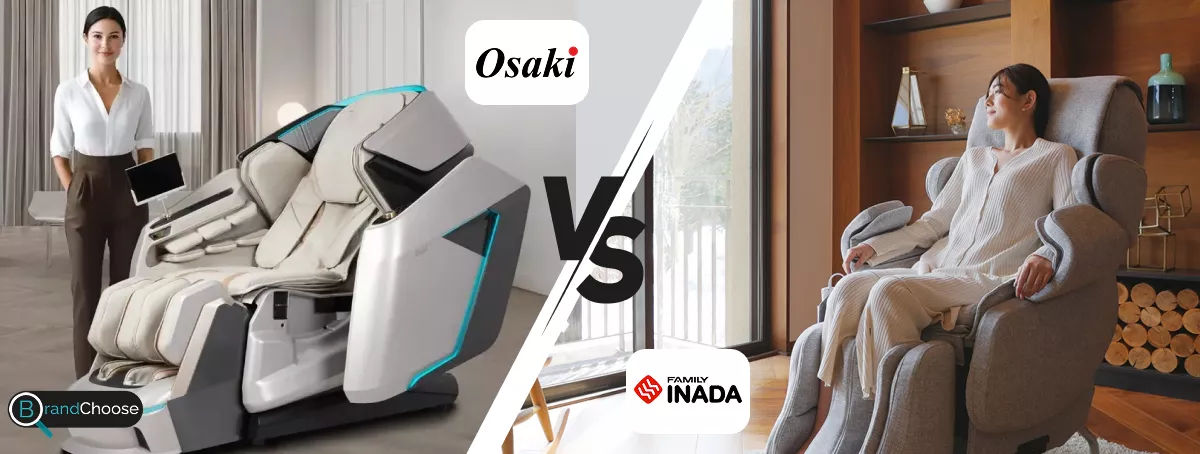
But against this sprawling variety stands a very different brand: Inada, a Japanese pioneer that invented the massage chair in 1962. Inada takes a minimalist approach in both product offering and design philosophy. With only two active models in its U.S. lineup — the DreamWave M.1 and Robo-Therapist 7 — it focuses entirely on delivering clinical-grade therapy through slow, controlled Shiatsu techniques and unmatched build quality. This comparison dives deep into how these two radically different approaches perform across all the key aspects that matter to massage chair buyers.
Product Selection
🟦 Osaki has over 60 live models, including chairs optimized for smaller spaces, wall-huggers, high-end designs, and oversized options. From the basic OS-Champ to the premium Maestro LE 2.0, it’s easy to find a chair that fits your space and wallet.
| Primary Use Case | Osaki | Inada | ||
| Entry | OS-Champ | 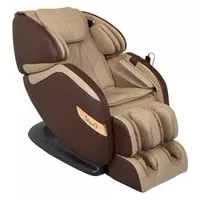 |
No direct equivalent in this category |
|
| Mid | OS-Pro Admiral II | 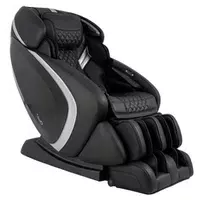 |
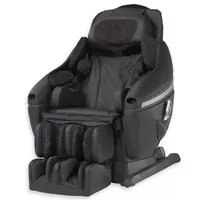 |
DreamWave M.1 |
| Flagship | Maestro LE 2.0 | 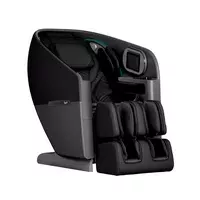 |
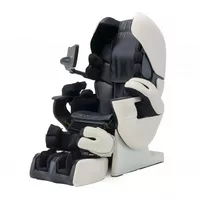 |
Robo-Therapist 7 |
🟪 Inada keeps it simple with just the DreamWave M.1 and Robo-Therapist 7 in the U.S. market. While both are high-quality, the limited selection means less flexibility in terms of design, size, and price.
✅ Osaki dominates in product diversity; Inada stays focused and exclusive.
Customer Support & Warranty
🟦 Osaki offers a standard warranty: 3 years frame, 2 years parts, and 1 year labor. Its U.S.-based service center ships parts quickly, but some users report inconsistent repair experiences depending on region and dealer.
🟪 Inada provides 5 years on the frame, 3 years on parts, and 1 year in-home service through authorized specialty dealers. While part replacement may take longer (as components come from Japan), user reviews highlight professionalism and repair accuracy.
✅ Inada offers higher service quality, even with longer lead times.
Build Quality & Durability
🟦 Osaki builds its chairs in China and Thailand, with higher-end models using better motors and materials. Models like the Maestro LE 2.0 use sturdy steel frames and reinforced tracks, but some entry-level models may show wear after several years of daily use.
🟪 Inada's chairs are hand-assembled in Japan with ISO-certified materials and medical-grade motor systems. Users frequently report over 10 years of regular use with minimal decline in performance. Internal components are shielded to reduce heat and vibration damage over time.
✅ Inada takes the win for unmatched durability and long-term consistency.
Massage Variety
🟦 Osaki offers an impressive variety of massage techniques across its lineup. The OS-Champ provides basic kneading and tapping on a 2D SL-Track, while mid-range models like the OS-Pro Admiral II introduce 3D rollers and more advanced sequences. At the top end, the Maestro LE 2.0 features heated 4D rollers capable of adjusting not only depth and speed, but also rhythm and direction — mimicking a human hand more closely. It includes presets like Sports Recovery, Stretch Mode, and Deep Tissue.

🟪 Inada, on the other hand, sticks with expertly tuned 3D rollers across its lineup. The DreamWave M.1 integrates the brand's signature pelvic swaying mechanism, which rocks the user's hips side-to-side to release spinal tension — a motion rarely found in other brands. The Robo-Therapist 7 takes things further with motorized roller control based on therapeutic timing rather than entertainment.
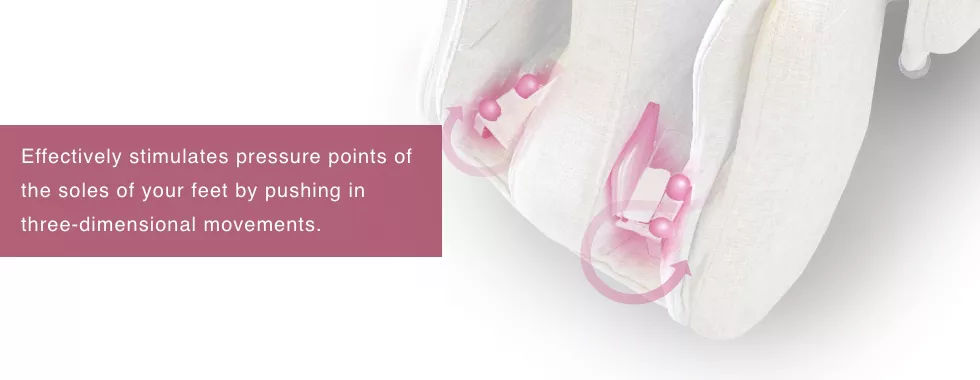
✅ Osaki leads in sheer volume and novelty of techniques, while Inada delivers a more consistent, purpose-driven experience rooted in traditional Shiatsu principles.
Programs Variety
🟦 Osaki's Admiral II offers 15 preset programs, and the Maestro LE 2.0 adds 3 user memory slots for saving custom routines. Programs cover everything from Stretch and Office Recovery to Sports Mode and Gentle Relax, making Osaki ideal for multi-user households or those who want novelty.
🟪 Inada chairs ship with fewer but highly specific programs. The DreamWave M.1 includes modes like “Posture Correction” and “Sleep Prep,” while the Robo-Therapist 7 expands to 16 therapeutic routines focused on circulation, spine, and joint care. These programs rely less on gimmicks and more on clinical timing and movement.
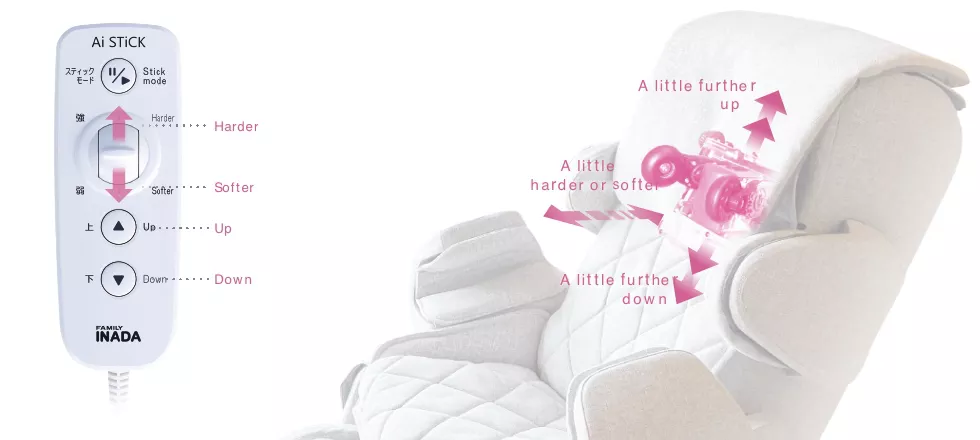
✅ Osaki offers variety and flexibility; Inada delivers fewer programs with greater focus and structure.
Cost & Affordability
🟦 Osaki spans a wide price range. The OS-Champ sits below $2,000, the Admiral II in the $3,000–$4,000 range, and the Maestro LE 2.0 often runs $6,500–$8,000. Frequent sales make it accessible.
🟪 Inada lives in the high end. Both the DreamWave M.1 and Robo-Therapist 7 usually retail between $6,500–$10,000, with minimal discounting. You're paying for Japanese manufacturing and therapy-grade components.
✅ Osaki is the more affordable and flexible brand; Inada is a long-term investment.
Technology & Wellness Extras
🟦 Osaki excels here. The Maestro LE 2.0 includes LED mood lighting, Bluetooth speakers, USB charging, and heated rollers — not just pads. Some models even feature voice commands and mobile app integration.
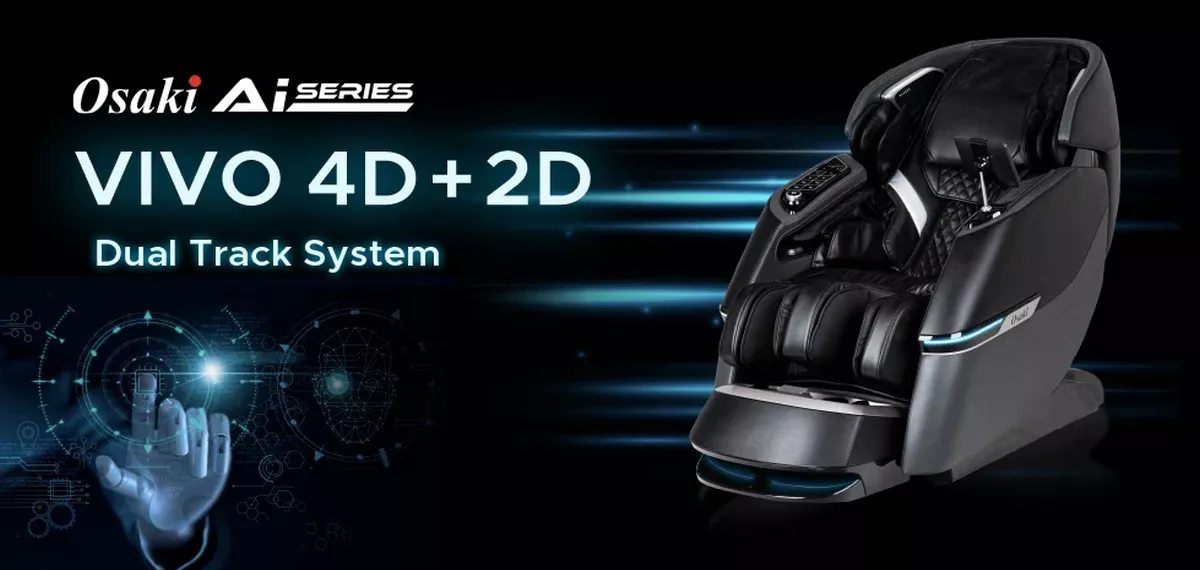
🟪 Inada sticks to the essentials. The DreamWave M.1 and Robo-Therapist 7 include lumbar heating and noise-optimized mechanics but avoid flashy add-ons. The focus is on therapeutic silence, precision, and core performance.
✅ Osaki wins for smart extras and flashy convenience; Inada stays purist and minimal.
Body Coverage & Adjustability
🟦 Osaki’s SL-Track design (used in models like the Maestro LE 2.0) allows the roller system to travel from the neck down to the glutes and upper hamstrings — an advantage for users seeking full lower-body treatment. These chairs also include up to 32 airbags targeting areas such as the shoulders, arms, calves, and feet, with adjustable intensity levels and customizable focus zones.
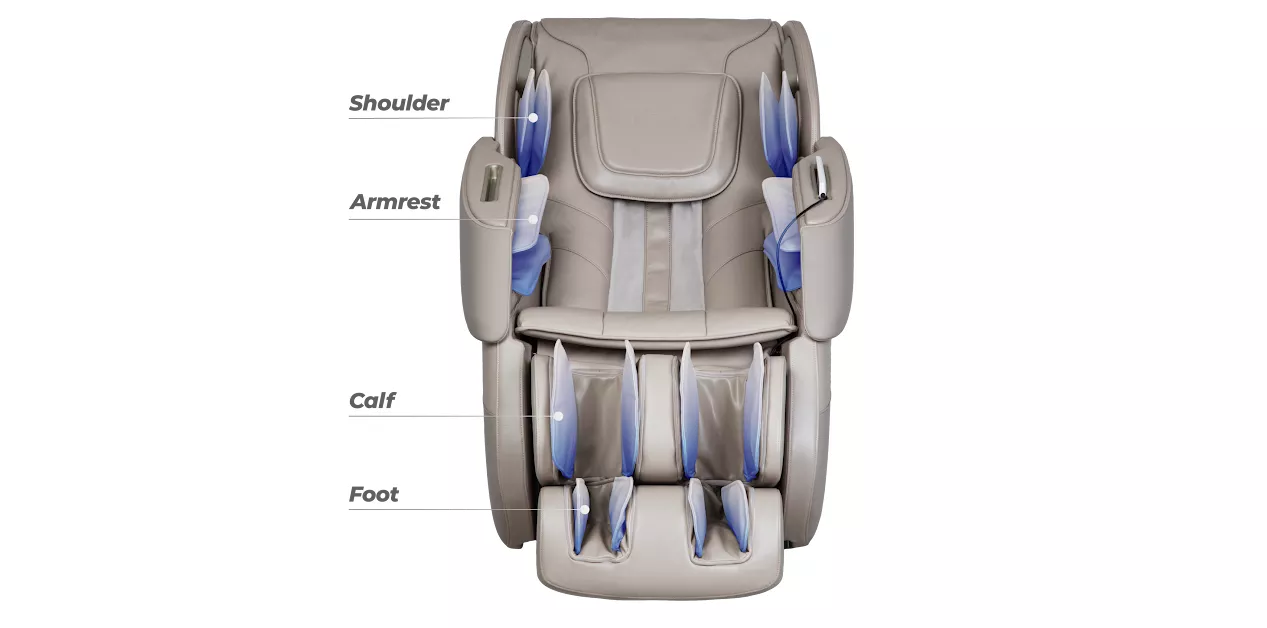
🟪 Inada's DreamWave M.1 uses a shorter S-Track that targets from the neck to mid-glutes but adds unique pelvic rotation and waist tilt via airbags — especially beneficial for users with hip stiffness. The Robo-Therapist 7 uses advanced sensors to adjust roller position based on shoulder height and spine curvature, ensuring accurate and consistent pressure.
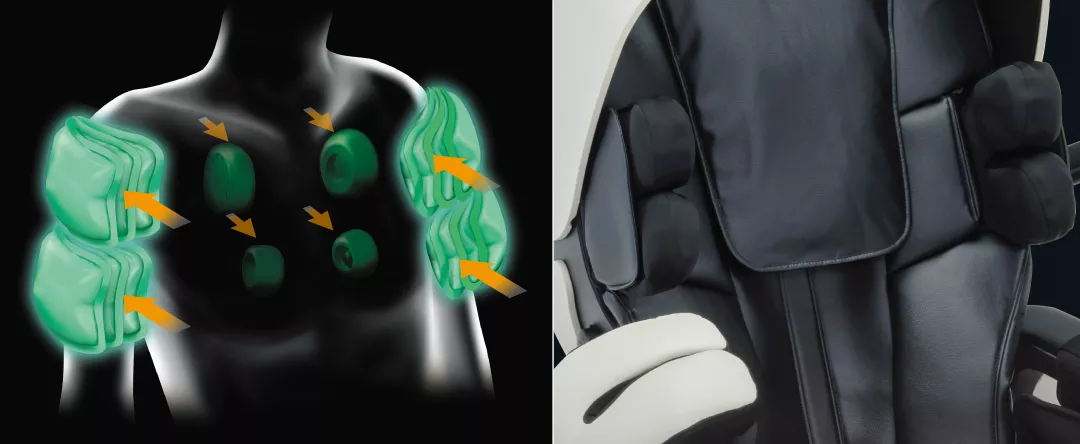
✅ Osaki wins on full-length coverage and adjustability range; Inada leads in mid-body precision and spinal alignment.
Comfort & Ergonomics
🟦 Osaki chairs, particularly the Admiral II and Maestro LE 2.0, are designed to feel like high-end loungers. They include multi-stage Zero Gravity recline (a NASA-inspired position where knees are elevated above the heart to reduce spinal pressure), memory foam cushioning, and extra-wide seat bases. Osaki’s designs accommodate a wide range of user heights and weights, and offer convenient entry/exit with forward-sliding mechanisms.
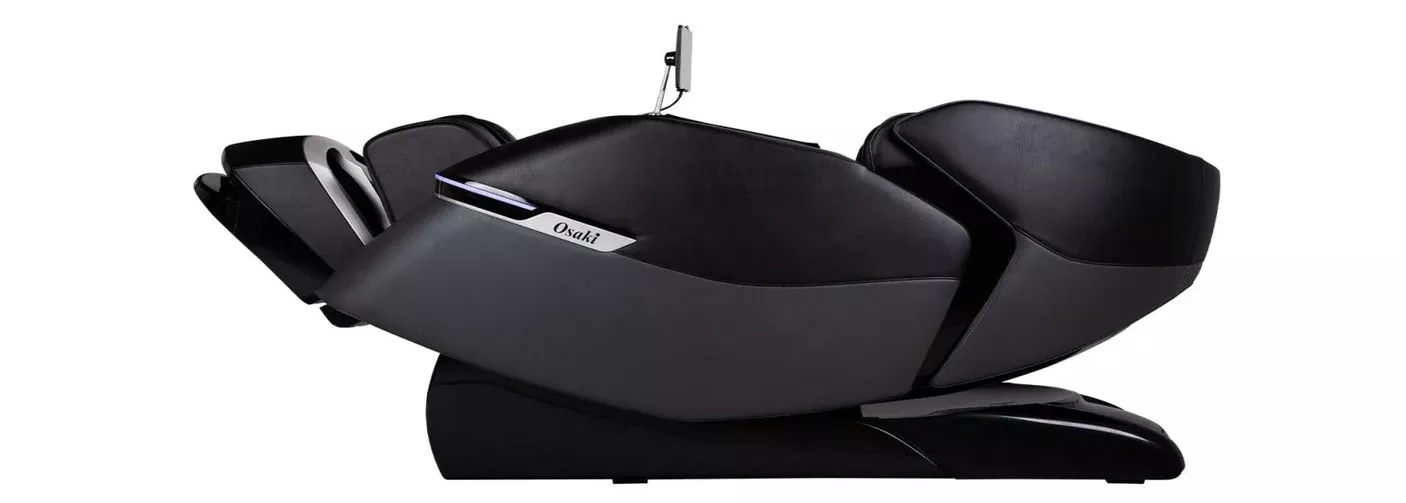
🟪 Inada, especially in the DreamWave M.1, focuses more on postural alignment than cushy comfort. Its seats are firmer, the recline angles are more modest, and the entire frame is built around maintaining neutral spine alignment. The Robo-Therapist 7 even adjusts the hip position based on body shape to avoid overextension during long sessions.
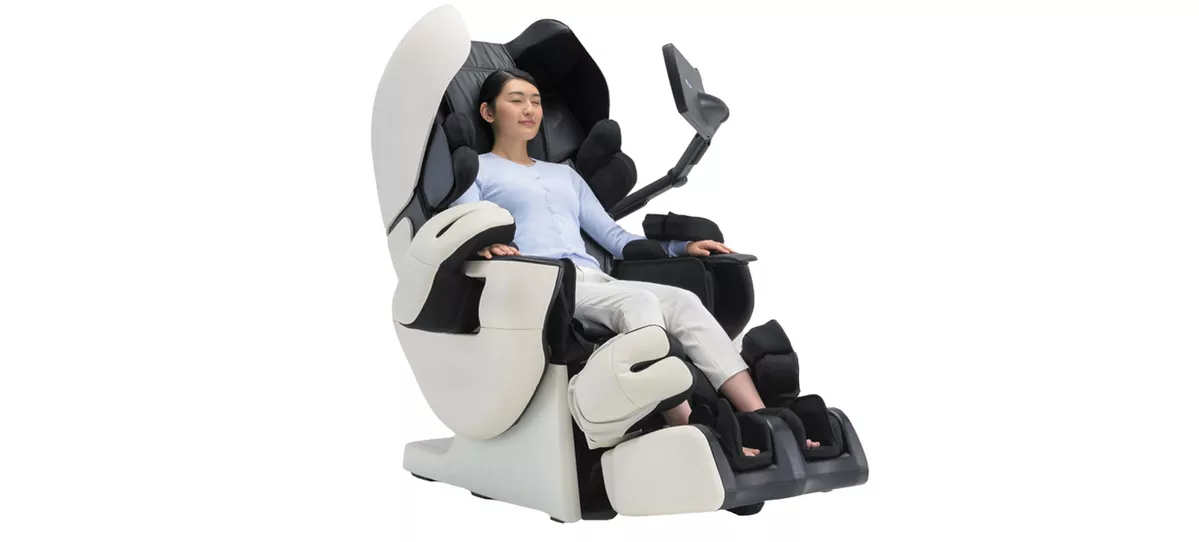
✅ Osaki provides more recline comfort and softness; Inada offers superior long-session support for therapeutic users.
Quick Buyer Match Guide
🟦🟦 Go with Osaki if you:
• Want maximum features and adjustability per dollar.
• Enjoy customizing your experience with programs and tech add-ons.
• Prefer an SL-track for full glute and hamstring massage.
• Need choices across multiple price tiers and body sizes.
🟪🟪 Go with Inada if you:
• Value clinical precision, Shiatsu techniques, and posture correction.
• Want ultra-reliable hardware that lasts 10+ years.
• Are okay with fewer programs and no tech extras in favor of pure therapy.
• Prefer quiet operation and medically inspired design.
Conclusion
Osaki and Inada represent two very different philosophies in massage chair design. Osaki is for the user who wants more: more features, more programs, more options — and at every price point. Its chairs offer excellent coverage, modern aesthetics, and accessible pricing. Inada, by contrast, is about refinement: fewer options, but each one meticulously engineered. For buyers seeking a true therapeutic tool with clinical-grade reliability, Inada remains the gold standard. Ultimately, your decision should come down to purpose: if you want a powerful, feature-rich massage chair for regular relaxation, Osaki delivers. But if you're seeking structured, consistent therapy with minimal distractions, Inada is built to serve you for the long run.






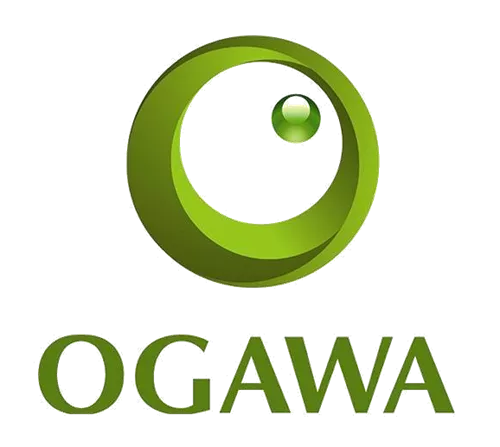
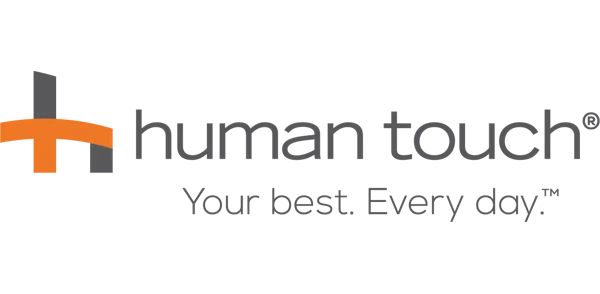
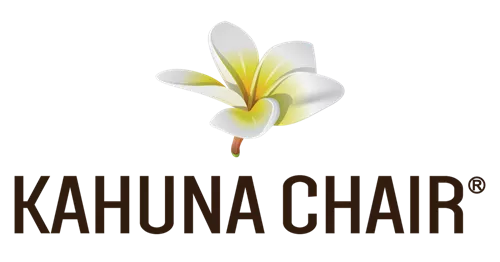


.png)